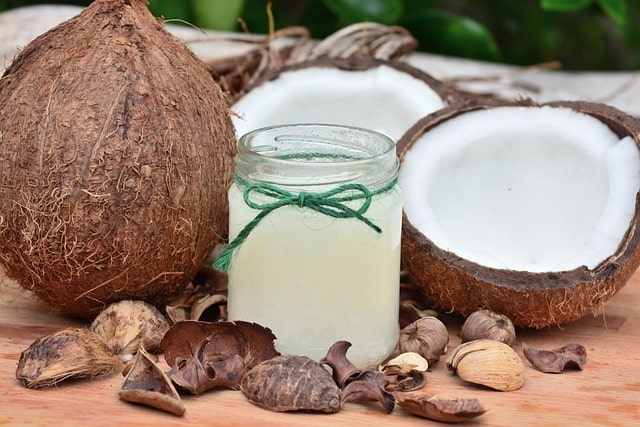Is Coconut Oil Good for Sunburn?
When the sun’s blazing and the time outside stretches longer than you intended, it’s not uncommon to end up with a painful reminder of your day in the form of a sunburn. Amidst the plethora of home remedies that people swear by to soothe burnt skin, one in particular seems to have gained a fair amount of attention: coconut oil.
In this blog post, we will delve into the known properties of coconut oil, consider expert opinions, and explore the potential benefits and drawbacks of using coconut oil on sunburned skin. Our goal is to provide you with well-rounded insight so you can make an informed decision on whether coconut oil could be part of your sun-care regimen.
Can Coconut Oil Treat Sunburn?
The use of coconut oil for sunburn is surrounded by mixed opinions. Advocates suggest that the oil’s fatty acids might soothe and hydrate burnt skin. However, some dermatologists warn against putting any kind of oil on burned skin as it can trap heat, exacerbating pain and discomfort.
The Argument for Coconut Oil
- Coconut oil could hydrate and make tight, burnt skin feel more comfortable.
- Its to potentially promote healing through anti-inflammatory and antimicrobial actions, lessening the chance of infection.
- The antioxidants found in the oil may counteract oxidative stress caused by UV exposure.
caution while using Coconut Oil on Sunburn
- Can trap heat in the skin, which could increase pain.
- The layer formed by oils might reduce skin’s ability to release heat.
- It does not contain any sun-protective factors and should not be used as a sunscreen substitute.
Supporting Research
Scant research deals directly with treating sunburn with coconut oil, so empirical evidence is lacking. However, the hydrating effect of coconut oil on the skin after sunburn can’t be discounted despite the advice for caution.
Now, looking at what science has to say, how does one use coconut oil appropriately if they choose it as a sunburn remedy?
Understanding Sunburn
Before we assess the potential role of coconut oil, let’s take a short journey into understanding sunburn itself.
Overview: Sunburn results from the skin’s exposure to ultraviolet (UV) radiation beyond what it can handle. This damage triggers an inflammatory response, redness, and pain.
Types of UV Radiation: UV radiation comes in several types, primarily UVA and UVB, each contributing differently to skin damage.
Prevention and Immediate Care: Preventative measures like wearing broad-spectrum sunscreen, covering with clothing, and avoiding peak sunlight hours are crucial. Immediate care for sunburn often includes cool cloths, aloes, and over-the-counter remedies.
The Composition of Coconut Oil
Breaking down what’s actually in coconut oil can aid in understanding its potential effects on our health, both inside and out.
Fatty Acids: Coconut oil contains a high level of saturated fatty acids – mainly lauric acid, which can have antimicrobial properties.
Vitamin E: It also includes Vitamin E, known for its antioxidant properties.
Moisturizing Effects: The oil is known for its moisturizing capabilities, often used as a natural skin conditioner.
The Symptoms of Sunburn
- Red, tender and swollen skin
- Pain and itching
- Blisters that may break
- Peeling of the skin as it heals
- Severe reactions, including nausea, fever, and chills
Repeated sunburns, especially during childhood and adolescence, can boost the risk of damaging skin cells, potentially leading to skin cancer in the future. Given these severe consequences, prevention is the best policy.
Protecting Yourself From Sunburn
- Stay in the shade, especially during the midday hours.
- Wear clothing that covers your skin and a wide-brimmed hat.
- Apply broad-spectrum sunscreen with at least SPF 30 before going outdoors.
Let’s examine if coconut oil fits into post-sunburn care or whether it should be skipped in favor of other treatments.
Potential Benefits of Coconut Oil for Sunburn
There are numerous arguments supporting the use of coconut oil on sunburn. Below we uncover some of the claimed benefits.
Moisturizing Properties
The skin can become dry and dehydrated after a sunburn. Coconut oil’s moisturizing nature may help to replenish lost moisture.
Antimicrobial Elements
Given that coconut oil has antimicrobial properties, advocates suggest it can prevent infections on the damaged skin where a sunburn has occurred.
Antioxidant Components
Antioxidants in coconut oil could presumably mitigate oxidative stress in the sunburnt skin, although this area has limited studies to establish efficacy.
Analgesic and Anti-inflammatory Effects
Anecdotal evidence sometimes suggests it may have a mild pain-relieving and anti-inflammatory impact due to its culmination of beneficial properties.
Potential Drawbacks of Coconut Oil for Sunburn
In contrast to the potential benefits, it’s crucial to recognize reasons one might want to tread carefully when considering coconut oil for sunburn relief.
Pore Blocking
Since it is thick and comedogenic, there is a possibility that coconut oil could trap heat and block pores, potentially aggravating the inflammation rather than soothing it.
Lack of Scientific Support for Healing
There is limited concrete scientific evidence to directly support the use of coconut oil in accelerating the healing process of sunburns.
Risk of Allergic Reactions
While rare, some individuals may have allergic reactions to coconut oil, indicating the need for cautious patch testing before liberal application.
Insufficient Protection
It must be understood that coconut oil does not provide UV protection, hence should not be used in place of sunscreen or as relief in anticipation of further sun exposure.
Expert Opinions
To gather a more objective viewpoint on the matter, let’s consider what dermatologists and skincare experts have to say about using coconut oil on sun-damaged skin.
Dermatologists typically encourage seeking products specifically formulated and tested for sunburn, which would seldom include coconut oil.
Experts often stress the importance of proper healing and moisture balance in treating sunburn, which may not always align with the properties of coconut oil.
Coconut Oil’s Properties
Coconut oil has been lauded for its extensive health benefits. It’s a rich source of saturated fatty acids with potential antimicrobial, anti-inflammatory, and moisturizing properties.
The Composition of Coconut Oil
- Lauric acid
- Capric acid
- Caprylic acid
- Antioxidants
- Beneficial proteins
People have used coconut oil for a variety of skincare routines due to its potential to moisturize skin and improve its overall health.
How to Use Coconut Oil for Sunburn
If you’re leaning towards trying coconut oil for mild sunburn relief, follow these general tips:
Step-by-Step Instructions
Cool Down First: Before applying coconut oil, make sure to cool the burnt area with cold water or cold compresses. This helps to stop the burning process and prepare skin for further treatment.
Gentle Application: Apply a small amount of virgin, unrefined coconut oil gently to the affected area. A light touch is crucial; do not rub raw or blistering skin.
Repeat: You can reapply coconut oil several times a day, always after cooling the skin with water.
Hydrate: Sunburn can dehydrate you – drink plenty of water to aid in your skin’s healing process.
Alternatives to Coconut Oil for Sunburn
In case you’re second-guessing the suitability of coconut oil for your sunburn, here are a few alternatives that might serve as more widely recommended options.
Aloe Vera
Often the first line of treatment, aloe vera is renowned for its cooling, hydrating, and anti-inflammatory properties.
Over-The-Counter Hydrocortisone Creams
These creams can reduce inflammation and swelling when applied to a sunburn.
Cool Baths or Showers
Simple measures like these can bring immediate relief to sunburnt skin.
Stay Hydrated
Drinking plenty of water helps rehydrate the body which can promote better healing from within.
Use of Lightweight, Non-comedogenic Moisturizers
Lotions that do not block pores can keep inflamed skin hydrated without causing additional irritation.

